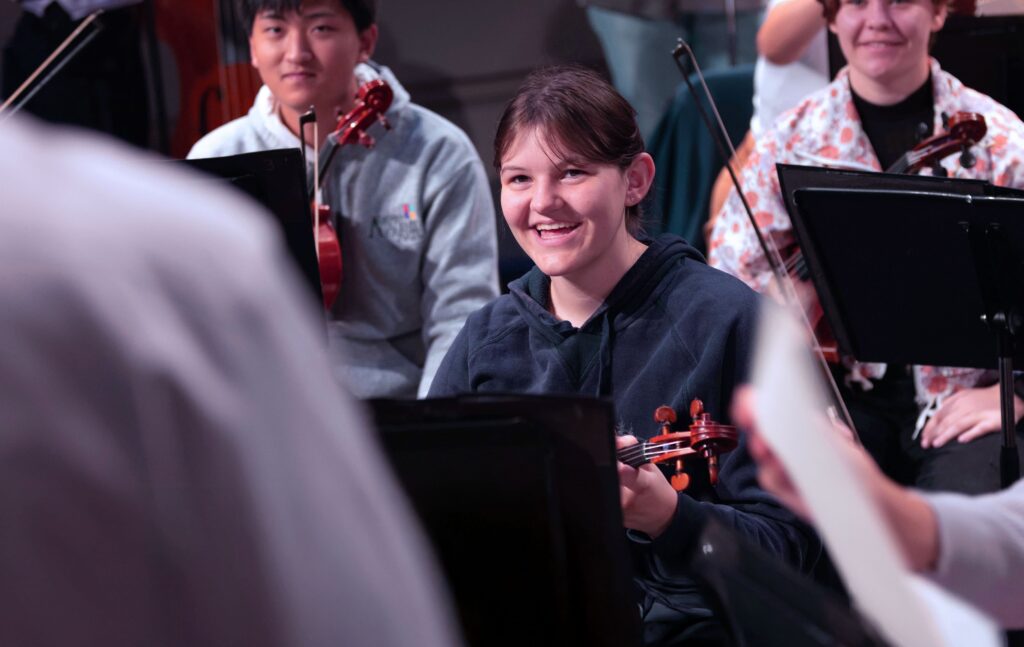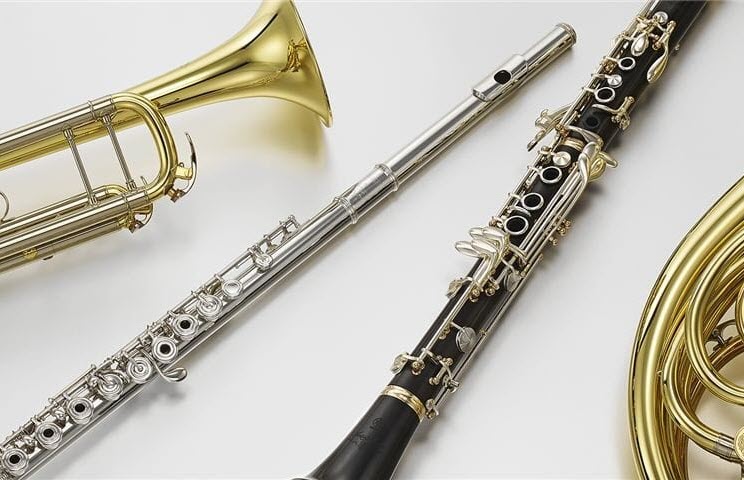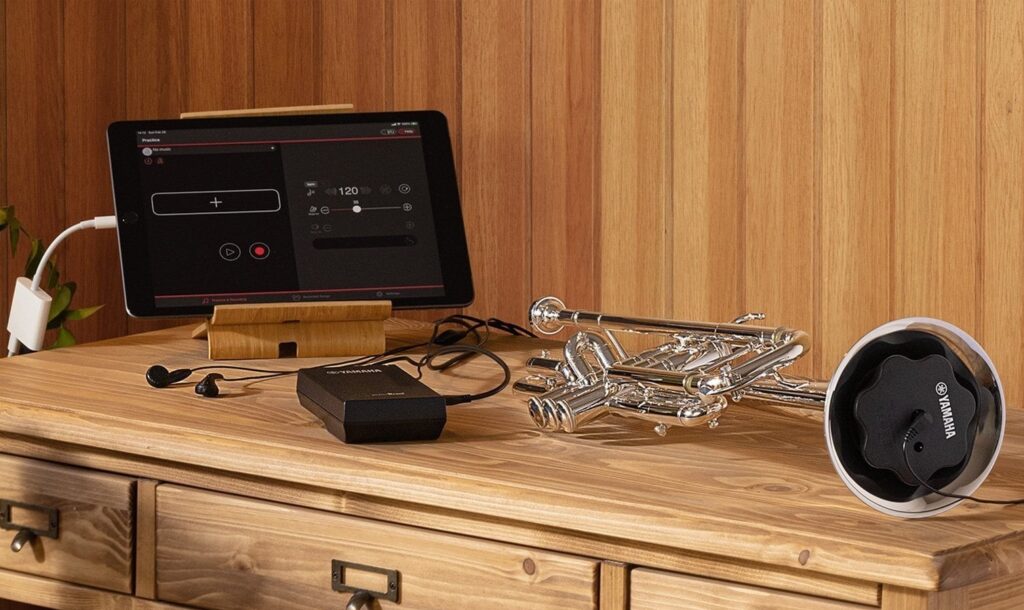Tagged Under:
Back to School: A Parent’s Guide to Renting and Buying Musical Instruments, Part 1
How to get your child started on their musical journey.
Your child has just come home from school with a note for you, inviting him or her to join (or audition for) the school’s band or orchestra. Your kid is willing — maybe even enthusiastic — so you give your consent.
Now what?
In this blog posting, we’ll provide you with a guide to the process of getting your child an instrument to play and give you tips for navigating through the journey; in Part 2 of this two-part series, we’ll tell you how to choose the best instrument for your child and describe the advantages and disadvantages of renting versus buying.
Let’s start by talking about the excitement that goes with launching your child on their musical journey.
Benefits of Playing an Instrument
Numerous studies have shown that learning to play a musical instrument at any age is good for you physically, mentally and socially, but it’s especially beneficial to a child’s development. Children who play an instrument do better in school, develop improved language skills, are likely to have more advanced physical coordination and emotional intelligence, and are socially well-balanced. Joining a school music program not only builds lifelong skills but also creates a sense of belonging and community, allowing your child to grow their musical abilities and develop meaningful connections.
So congratulations! You’ve made the right decision. The next step is to help your child choose which instrument to play.
Common Parental Concerns
If you’re thinking this sounds like too daunting a process, you’re not alone, but with a little guidance from your child’s teacher and a reputable music store, it’s a path that’s actually easy to navigate. As parent Angela Slawson says in the video below, “Now that we’ve gone through it, I think back to when we started [our children] in music and all the anxiety I had of not knowing what to do, who to call, how do I get them set up, all of that.… [But] if you’re a future band parent out there, my advice is, let your kids explore. Let them find their voice through music and don’t let the unknown prevent you from finding a music store and asking the questions. And then just know that they come out with more than just learning how to play music.
Fellow parent Prudence Elliott adds, “Also, don’t be afraid to … lean into your music teachers and your local music stores for advice. They have years of knowledge. Also [communicate with] other parents of music students: They are part of your team. They’re going through it with you.”
What Parents Wish They Knew Earlier
We asked both Angela and Prudence what they wished they knew early on in the process and Prudence’s reply was, “The importance of a good, lasting, quality instrument, especially when starting out, [and] that a well-made instrument sounds great, and is definitely something that will last longer.”
“Plus,” Angela added, “how important it is that the instrument doesn’t stand in the way of [your child’s] learning.”
Both parents also wished they had known in advance whether or not their music store had tutors and offered lessons after school hours. “Sometimes [my child’s] music teacher did,” Prudence explains, “but he only had very small blocks open for one-on-one time.”
“I did not know that there are private tutors for instruments like strings,” adds Angela. “It’s common knowledge that there are piano teachers, but I didn’t know that there would be a saxophone tutor or a cello tutor.”
There were also some surprising insights. “My younger [child chose] the viola as his first instrument,” says Angela. “It makes sense that the string quality and the bow matter, but all that I thought about was the case and the instrument. But there are other accessories associated with it [such as replacement bows, bow rosin, shoulder rests, mutes, etc.] that I didn’t think about. And then when he moved on to the clarinet and the saxophone, I did not know that they needed reeds, and these reeds are different sizes and that [this] mattered in terms of the playability of the instrument. I also did not know how quickly he would go through them!”
Motivation Tips for Consistent Practice
There are many things that you as a parent can do to motivate your child to practice their instrument consistently. Here are a few:
- Find your child a tutor they like and can relate to. Often this can make the difference between musical success or failure. Your child’s teacher and/or local music retailer should be able to provide referrals. And if you (or your child) don’t like the tutor’s approach to teaching, or if either of you dislikes the tutor personally, don’t be afraid to make a change — the earlier, the better.
- Set goals. Ask your child if there is something they’d like to be able to accomplish on their instrument in the coming weeks or months. Find out what appeals to them and discuss it as being a potential goal. If a young player can articulate achieving something that is on their mind, they are more likely to go for it.
- Encourage your child to build a repertoire. Talk to your child about which pieces of music they’d like to learn, even if it’s a contemporary song that you personally don’t care for. Beginning students will always be more motivated to play the music they like.
- Keep the instrument on display, not hidden away. Having your child’s instrument out and visible in their room, or in the place they would normally practice, is always helpful. (Just be careful of heat, dust and/or passers-by to prevent damage.) There’s a difference between walking past a case sitting on the floor and feeling the urge to put in a solid playing session.
- Encourage your child to practice with others. Ask if they know of any other kids they’d like to play with, and then help them organize a jam session, even if it means driving your kid across town, or other kids to your home. Offer to assist by providing snacks, chairs and/or music stands.
- Encourage short-spurt practicing. It may be too lofty a goal to get any youngster to focus for long periods of time (other than on pursuits like video games), so ask your child to practice for just 15 minutes at a time so they can work on something — even something as simple as a scale — in a focused manner. Then ask them to return to their instrument later in the day for another 15 minutes to work on something else. Don’t be surprised if your child starts expanding those practice sessions on their own!
- Refer to it as simply “playing” and not “practicing.” The word “practicing” can sound like a chore, but “playing” implies having fun. Associating playing as an everyday activity sets your child up for the best chance of success as a musician, and will give them the ability to enjoy making music for years to come.
What to Do When Your Child Is Ready to Move On to Better or Different Instruments
As your child progresses musically, they may express a desire to move on (“step up”) to a better quality instrument. Many of today’s instruments (even beginner “entry-level” ones) are of good quality and deliver a reasonable sound. However, there’s no question that step-up instruments utilize better materials and design techniques, making them more durable and enabling them to deliver improved sound quality … and in some cases, they’re easier to play too. Be careful to encourage this desire, and if possible, arrange to rent or buy an intermediate-level instrument. (Your child’s teacher or a musical instrument retailer can provide recommendations.) The sheer fact that they are expressing an interest in playing a better instrument is a good sign that having one will help motivate your child further still, which will in turn allow their skills to improve more rapidly. Yamaha offers an especially wide range of both student and intermediate-level (as well as professional-level) instruments.
It’s also possible that your child may decide that they’d like to transition between related instruments (i.e., clarinet to saxophone, or trumpet to French horn), or even to a completely different type of instrument altogether. This is something that’s actually quite common: many professional musicians started on one instrument and switched over to another one early in their careers. As a parent, it’s important to validate that desire and accommodate your child’s wish if possible. Your child’s teacher and your local music retailer can give you further information and explain how musical skills translate from one instrument to the next.
Navigating Stressors
Visiting a music store for the first time to inquire about instruments for your child can be a stressful situation, especially if you don’t know the right questions to ask. This is where your child’s music teacher and a little online research can prove invaluable. If the salesperson is acting in a patronizing or demeaning way, or if he or she is rushing you, that’s an immediate red flag. Don’t be afraid to ask for the manager or walk out the door altogether. Their job is to help you through the process, not to make you feel bad about your desire to help your child learn an instrument.
If the music store staff won’t make specific brand or product recommendations, some online research should help point you in the right direction. You can also ask your child’s music teacher for recommendations, or find out the make and model number of the instruments the other kids in school band or orchestra are playing. Yamaha instruments, of course, are always a good choice!
Sometimes there will be high demand for certain instruments. If the music store doesn’t have the instrument you want in stock, perhaps there’s a waitlist they can add your name to, or maybe they can put you in touch with a different store that can ship it to you. Alternatively, ask the school’s band or orchestra director if there’s an instrument that can be borrowed from the school for a period of time. You can always talk to a family member to see if they have an instrument they will loan your child temporarily. These same strategies apply if you need an instrument urgently.
A Lifetime of Enjoyment and Pleasure
Learning an instrument at a young age can have a huge impact on music appreciation and can lead to a lifetime of enjoyment and pleasure. “Going to concerts and seeing my children play was like seeing them get their own instrument; it was precious,” says Angela. “When they go out to a concert or see a marching band at an amusement park, they know what kind of work goes into this,” adds Prudence.
“We take them to concerts and to see big bands play,” Angela says. “I think they can really appreciate how hard it is to play an instrument and how much skill it takes to create that sound. It definitely elevated them in terms of their appreciation of music. And it’s not just the playing that they took away. It’s that confidence, that group of friends they developed. They learned other skills beyond just playing music.”
Prudence concurs. “They learned to have huge respect for the others that they’re playing with. Knowing that if they didn’t practice their part, it messed it up for everybody else. That’s what teamwork was all about.”
Be sure to check out the Yamaha Parent Resources website.

















